The only time I ever cried with joy was when my parents bought a caravan. I was nine years old and thought we might go on holiday now and be normal. We lived on a farm and didn’t have holidays because cows don’t milk themselves you know.
When the caravan arrived my sisters and I waited on tenterhooks. Would Dad take the car to Mitchell’s and get a tow-bar fitted or would having no tow-bar be an excuse to stay at home and watch the shiny new caravan, with its gold brocade sofa and tiny silver sink, rot in the farmyard?
‘I’ll see,’ was all he’d say.
Buying a caravan had been my mother’s idea. The whole project had my mother written all over it because she liked to spend a lot of money and make out she was saving it.
My granddad was outraged. His only trip away from the farm had been to fight in the trenches in the First War. He cornered me and, nodding at the caravan, whispered: ‘How much was that?’
I knew exactly how much because I’d sat silently praying, praying they’d buy it as Mum and Dad talked to the salesman. ‘Six hundred pounds,’ I said, and Granddad’s eyes bulged and he spat out his bacca. It was 1972 and that sort of money could have got us a B&B in Blackpool lock, stock and barrel. (Granddad wouldn’t have approved of that either and Mum would rather have died.)
After a nail-biting wait the tow-bar was fitted and we set off with great towing mirrors sticking out the sides of the car, presumably so my dad could check on the stream of cursing drivers stretching behind as far as the eye could see.
We left Lancashire and headed to Scotland, which was exciting and also worrying because it was the first time I’d been abroad and my sister said they spoke different there. She said they’d know straight off we were foreign. Definitely.
We kept up a steady fifty. ‘That lorry driver’s waving,’ said my little sister. ‘No he’s not, he’s finger swearing,’ said my older sister. We watched with interest and practised.
Are we there yet? No. We were in a big tangled city where the fly-overs had views onto buildings too big and scary for people to live in, surely? There were no trees. ‘That’s the Gorbals,’ said my mother. Maybe it was, maybe it wasn’t; maybe my mother thought any run-down bit of Glasgow was the Gorbals. I don’t know.
We got to Loch Ness and went for a paddle. My mother paddled with her nylons and shoes on then tied her tights to the silver grille on the front of the Austin Princess to dry. She bought a tea-towel with Highland cattle on to dry our feet but it didn’t absorb the water. Her tights flapped and twisted in the breeze as we drove on.
That night we stayed at a caravan park called The Battlefield at Inverurie. I never thought to ask which battle. It seemed natural that places were battlefields; as far as I could see everywhere there were folk battling about something.
For supper we had tinned meat, tinned new potatoes and tinned peas followed by tinned peaches. It was delicious because we cooked it on a one-ring gas stove and ate it on a fold-down table that turned into my parents’ bed.
As the sun sank the midges came out. They ignored me but I watched everyone else scratching their scalps and rubbing their shins. In the morning my mother wiped the window with a white cloth that turned black and muttered: ‘I’ve never seen owt like it.’
We headed down the Mull of Kintyre to visit Aunty Peggy and Uncle Tom. My mother said not to tell them we were coming so they couldn’t make a fuss. When we got there Uncle Tom was fast asleep after his night-shift at the bakery and Aunty Peggy was on day-shift. When she got home she made our teas. My mum said Aunty Peggy and Uncle Tom looked tired out.
Aunty Peggy looked like Mrs Bunn the Baker; small and very fat with her red hair piled high on top. She said she was fat because the whipped cream and custard soaked through her fingers at the bakery. My mother rolled her eyes and said Aunty Peggy was a romancer. Aunty Peggy said she wasn’t allowed to plant orange flowers in her front garden because some folks round there didn’t like orange and they’d get dug up. My mother rolled her eyes again.
We went for a walk to the harbour. A boat had come in and tubs of fish were being unloaded on the quayside. The local kids were running about. Suddenly, right in front of me, a girl my age grabbed a flapping fish by the tail and smashed its head against a bollard. She laughed in my face and I can’t remember if it was her or the fish that had rows of little sharp teeth. My dad shook his head, part impressed, part not. ‘She’s done that afore,’ he said.
The next day, driving back through Ayrshire, we spotted Robbie Burn’s cottage. ‘We’ll have a look,’ my mother said, ‘because he used to be a farmer.’
Then we headed home, disappointed because Dad refused to drive up and down the A6 to get the holiday mileage over 1,000 miles.
Back at the farm I went inside to draw pictures of caravans, midges, fish and bollards.
Nearly twenty years later I moved to Scotland permanently and I’ve been here over twenty years.
When I’m in Scotland I call Lancashire home. When I’m in Lancashire I call Scotland home. I often drive down the M6, and when the sign says: ‘Welcome to England’ it makes me happy. On the way back it says: Welcome to Scotland Fàilte gu Alba, and that makes me happy too.

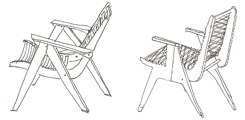
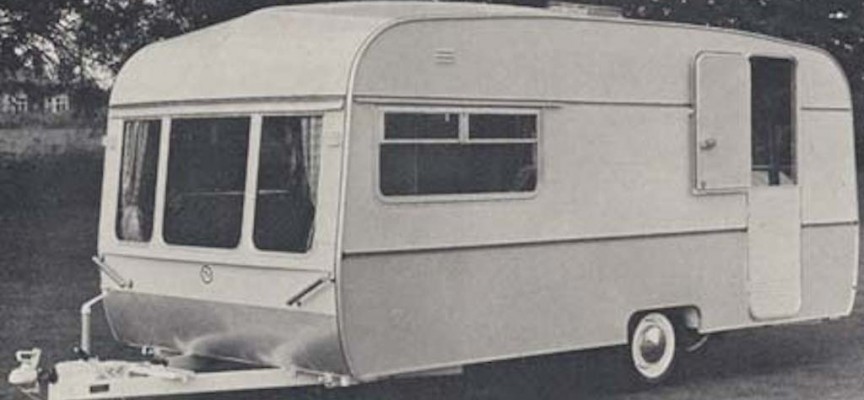
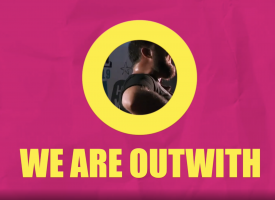
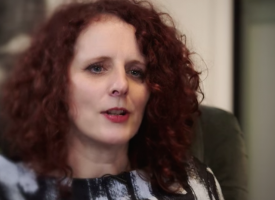
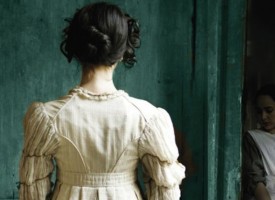
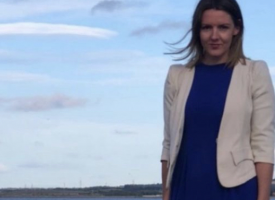
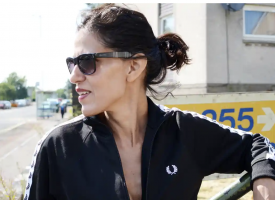
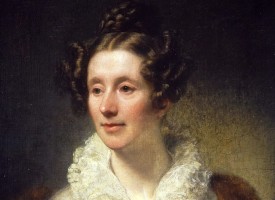
No comments!
There are no comments yet, but you can be first to comment this article.